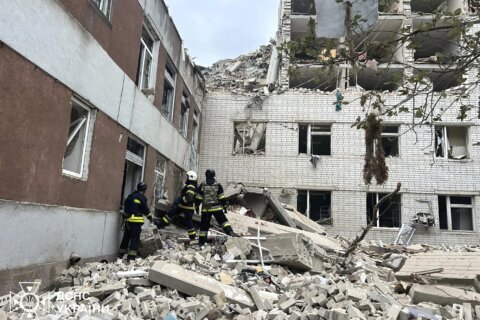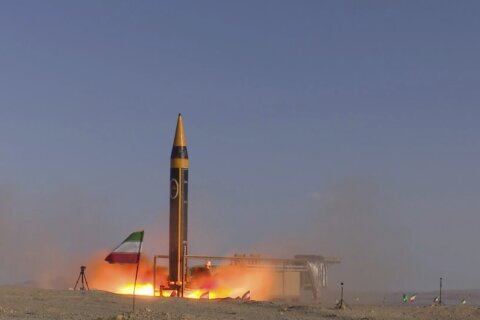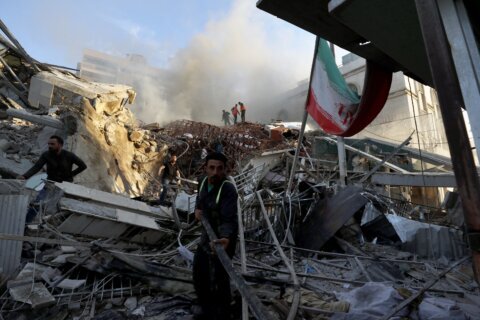J.J. Green, wtop.com
WASHINGTON – A deadly trio of thundering U.S.-launched drone strikes on Aug. 24 rattled a militant hideout in Pakistan’s North Waziristan tribal region. In the haze after the attack, word came that a member of the powerful Haqqani network had been killed. Badruddin Haqqani, one of 18 alleged victims, is the youngest of the Haqqani brothers. There is still doubt, however, about whether he was actually killed.
But in the cloak-and-dagger world that is Afghanistan, the strike could have a huge impact on another very sensitive issue hanging in the balance — the U.S. military attempts to secure the release of America’s only known prisoner of war.
Army Sgt. Bowe Bergdahl, 26, of Hailey, Idaho was captured near the Afghan town of Yahya Khel in west Paktika province on June 30, 2009 under circumstances that remain a mystery.
All that has been confirmed is that Bergdahl was caught in the mountains of eastern Afghanistan by forces loyal to the Taliban and later ended up in the custody of the Haqqani network.
Sirajuddin Haqqani, who took over the day-to-day operations of the potent weapons trafficking and financial network in recent years from his ailing father, Jalaluddin, “is holding Bowe Bergdahl,” says Robert Young Pelton, an expert on Afghanistan, who has lived and worked in the region on and off for long periods of time since the mid-1990s.
The author of “Licensed to Kill, Hired Guns in the War on Terror,” Pelton was deeply involved in the search for Bergdahl at the beginning.
“When they first kidnapped Bergdahl, I tracked him in real-time and then handed over the information to the (U.S.) military who put electronic assets in the air and then they lost him,” says Pelton, who operates an informal network of information assets in the region.
Liberating Bergdahl has been the focus of extensive U.S. government efforts including secret negotiations with the Taliban about a prisoner exchange that would free several senior Taliban figures now held at the U.S. military-operated Guantanamo Bay prison facility in Cuba.
“The safe return of Sgt. Bowe Bergdahl remains a top priority for the Department of Defense, and we continue to work every day, to secure his release and bring him home to his family. We will not discuss the details of those efforts, but there should be no doubt that we are using all military, intelligence, and diplomatic tools at our disposal,” says Cmdr. Bill Speaks with Pentagon Public Affairs.
Col. Timothy Marsano, media liaison for the Bergdahl family since 2009, tells WTOP, “Mr. and Mrs. Bergdahl have repeatedly said they’re comfortable that the Department of Defense and other U.S. agencies are doing all that can be done to bring their son home.”
The recent drone strike, however, may impact efforts to free Bergdahl.
The massive assault, which U.S.-based intelligence analysts say allegedly involved hitting three targets with two missiles each, was a rare development that signals the Haqqani network may have been double-crossed by someone or an organization that gave up information to the U.S. about key players in the network.
“It looks like somebody in the ISI (Pakistan’s Inter-Services Intelligence Agency) has decided to let Haqqani go,” says Pelton.
He suspects a significant, back-channel development has taken place.
“The fact (U.S. forces) had such good information so quickly means that they were striking not just one member of the Haqqani family, but probably the entire family,” Pelton says.
The intended target of the strike has not been confirmed, but some intelligence analysts suggest if Sirajuddin Haqqani was a part of the target set, it could color his thinking about releasing Bergdahl.
Pelton and other sources familiar with Pakistani politics say that for decades, the Haqqani network has been an important asset for Pakistani intelligence, which would know intimate details about the network, such as where they could be found.
“I think it’s entirely possible, but I don’t have independent knowledge” that Pakistani intelligence turned on the Haqqanis, says Doug Wankel, managing partner and Afghanistan country manager for the Spectre Group security firm.
Wankel, who lives in Kabul, says, “There’s no doubt that the ISI has been working closely with the Haqqanis and there’s untold pressure on the ISI to root out and provide information to allow these types of targets to be hit.”
The Pakistani government did not respond to questions about what relationship, if any, exists between it and the Haqqani network. But U.S. and foreign intelligence sources suggest that even if the Pakistani government did explain itself, it might not clarify the seemingly adulterous nature of war in the Tribal territories.
Public political maneuvering, according to Pelton, is often driven by covert motives.
Even though the Haqqani network, founded by Jalaluddin Haqqani, has facilitated countless deadly attacks inside Afghanistan, Pelton says, “People like (Afghan) President Karzai went and elected Jalaluddin’s brother as the military commander of the Afghan side of the border. So this is a very duplicitous, complicated world.”
Follow J.J. and WTOP on Twitter.
(Copyright 2012 by WTOP. All Rights Reserved.)







